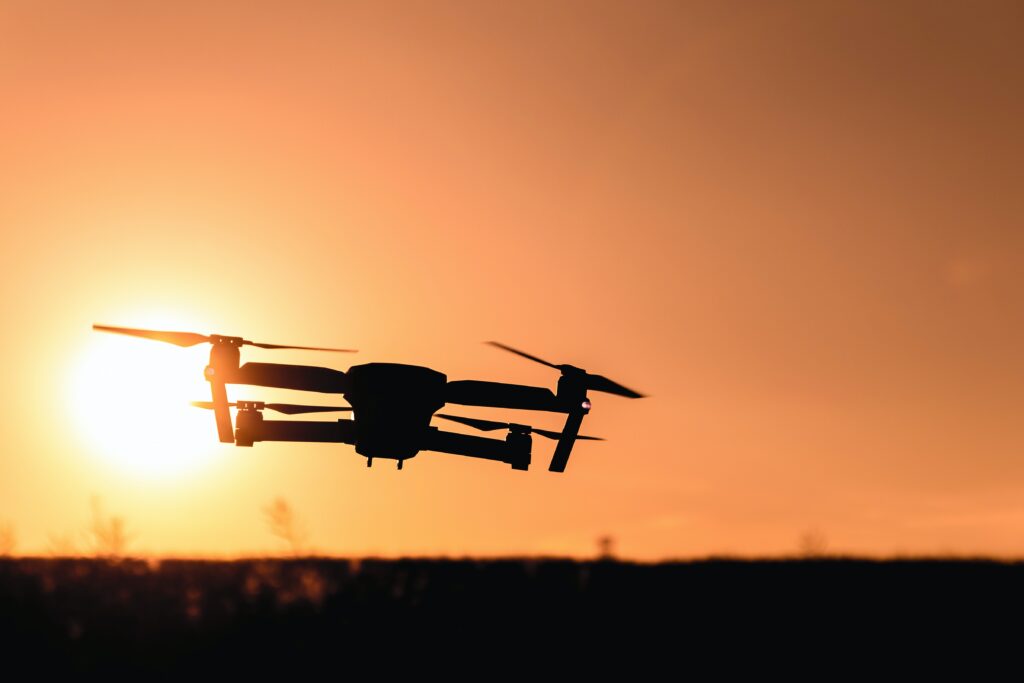
Until Sunday a week ago, drones had a pretty poor reputation. Evoking dark visions of “death from above,” they were seen as killing machines, armed with bombs and bullets, guided by the hands of remote pilots seated comfortably at a military base with a joystick and a video-game-like console. Even the term, “drone,” connotes a mindless, merciless robot.
All that changed when Jeff Bezos, CEO of Amazon.com, reimagined what drones might deliver. Last Sunday, on 60 Minutes, Bezos revealed plans to use drones to carry online orders from his warehouses to our homes. He called it Amazon PrimeAir and said he hopes to be flying in 5 years. The Internet lit up with the news.
Amazon PrimeAir showed us that drones can carry “death from above” or, as one writer put it, “showers of blessings.” Before Bezos’ announcement, it was easy for us to simply think of drones as bad. But now, this new possibility suggests that we can begin to think of them as good. So which is it, bad or good?
This question brings us back to a long-held belief: “Technology is neutral. How you use it determines if it’s good or bad.” So the argument goes: If you’re the military delivering your payload of bullets, a drone is bad. But if you’re Amazon delivering a payload of LEGOS, a drone is good. Now that Bezos has turned drones on their head, we have a chance to ask “Is technology really neutral?” Is it really just a matter of bullets vs. LEGOS?
Let’s set the bullets and LEGOS aside for a minute. Let’s just look at drones themselves. They’ve already changed the way we do battle. They are already causing us to wonder what it means to be “at war” and to ask whether war is right when people from only one side are in danger. In the same way, drones will change the ways we live and work and shop in peacetime. Bullets or LEGOS have nothing to do with that. It’s not a question of if life will change, but how. And then, will those changes make our lives better or worse?
Those questions are much harder to answer. But one thing is for sure: Life will be different. So, no technology is not neutral. Life will change. And neither bullets nor LEGOS can prevent that.
We can’t imagine all the ways that commercial drones will change our lives. For now, Jeff Bezos has invited us to imagine online shopping with drones-where every purchase is only 30 minutes away. In some sense, the drone reincarnates the milkman, the paper boy, the mailman-now with all sorts of new products.
Also, we need to think beyond Amazon. Drones have the potential to change more than just our shopping habits. With a new delivery system in place, we may have fewer reasons to leave home. If a drone can drop items off, couldn’t it also pick them up? We could have new ways to send packages, return forgotten keys and gloves, or expedite an important contract. We will no longer have to get in our cars to return these items to friend or stores. All these new possibilities take flight with commercial drones.
Drones may eventually allow us to be home more and see each other less. It will be more convenient to send the contract or forgotten keys via drone, but will it change how often we see each other? Will shopping malls survive? If not, where will our teenagers loiter? Will drug traffickers have a safer way to transport their own payloads? What will happen to UPS and FedEx? What about pizza guys? Will Jimmy Johns be even freakier fast?
My point is that our habits will change at multiple levels. The more and more we integrate drones into our lives-regardless of what they carry-the more and more we will do things differently. And as our habits change, our social practices will too. In different ways than we do now, we will interact with friends and neighbors, colleagues and companies. Those new routines will be both beneficial and detrimental. Will our society be better or worse for it? It’s hard to know.
To believe that drones are neutral is shortsighted. The argument merely focuses on the question of bullets vs. LEGOS. If you only focus there, good and bad are pretty easy to determine. What’s more, we do this all the time with other mediums: TV (Are you watching cartoons or violence?), the Internet (Are you donating to charity or watching porn?), smartphones (Are you scheduling lunch plans or sexting?), cars (Is it convenient travel or environmental pollution?), clothing (Is it modest or provocative?), contraception (Is it sex without consequences or unwanted pregnancies?). These either-or approaches make the same mistake as bullets vs. LEGOS. For us to really wrestle with their long-term effects requires more imagination.
To get beyond the simple bullets/LEGOS question, we should zero in on the technology itself. We should ask ourselves, “Does life with drones (or TV, the Internet, smartphones, cars, clothing, contraception) enhance or diminish our lives and our society, and how?” Asking this kind of question moves us past the “technology is neutral” fallacy and forces us to think more creatively-and more critically-about what drones actually mean. From there, we’ll all be better able to weigh good and bad, and we’ll better understand just what it is that drones are delivering.
Originally published at Second Nature Journal.
Photo by JESHOOTS.com